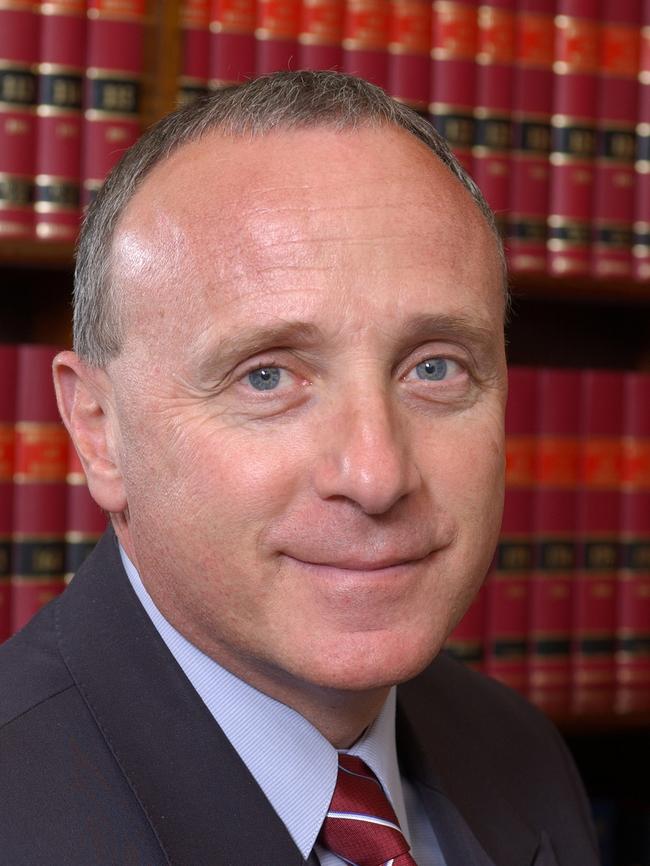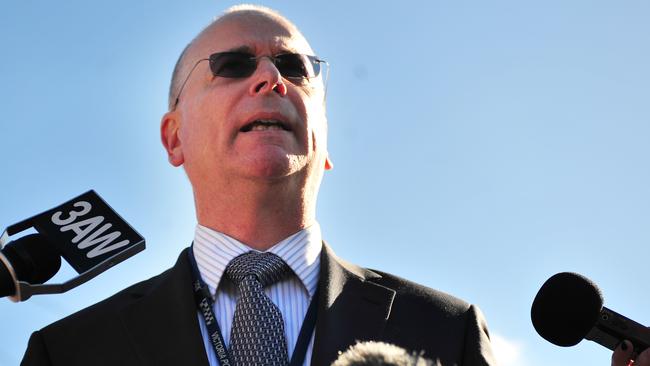Probe into system of police investigating its own uncovers major flaws
THE state’s anti-corruption watchdog has uncovered damning evidence revealing major flaws in Victoria Police’s system of investigating its own officers accused of serious crimes, including sex assaults and feeding information to criminals.
Law & Order
Don't miss out on the headlines from Law & Order. Followed categories will be added to My News.
THE corruption watchdog has uncovered damning evidence of major flaws in how Victoria Police investigates its own for misconduct including sex assaults and leaking to criminals.
The Independent Broad-based Anti-corruption Commission audited 59 of 221 investigations completed by Professional Standards Command in 2015—16, selecting the more serious complaints.
It found that in 95 per cent of cases, there had been no checks for any conflicts of interest between the investigators and the accused officers.
COP DISMISSED FOR LYING ON ‘RELATIONSHIPS WITH WOMEN’
BREATH-TEST RORT ‘JUST A FRACTION’
VIC POLICE OFFICER SUSPENDED OVER GUNS
And it disagreed with the outcome in 15 per cent of cases, finding evidence of “inadequate action”. These included two cases in which disciplinary charges were downgraded.
Most cases were also classed as “preliminary inquiries”, even when crime or corruption had been alleged.
IBAC assessed whether the investigations were thorough and impartial, and met the standards required for handling such serious allegations.
Cases it audited involved allegations of assault, improper criminal associations, use or possession of drugs, sexual offences, handling of stolen goods, making threats to kill, interfering in investigations, and misuse of information.

Commissioner Robert Redlich, QC, said IBAC had made clear recommendations on how to address the deficiencies it had identified in PSC’s handling of some of the more serious complaints.
These deficiencies included poor management of conflicts of interest, probity concerns, failures to consult the Office of Public Prosecutions, inadequate action, and inappropriate file classification.
Mr Redlich said Victoria Police had accepted all of IBAC’s recommendations.
Victoria Police was “already taking action to address some of the issues identified”, he said.
“IBAC will closely monitor the implementation of our recommendations and continue … auditing and reviewing Victoria Police’s handling of complaints,” Mr Redlich said.

He said Victorians must be assured that serious complaints would be properly and impartially investigated if they were to have confidence in the police. And to prevent misconduct, it was important that the force learned from complaints and addressed systemic and cultural problems.
Mr Redlich acknowledged that Victoria Police had been improving its handling of complaints in response to previous IBAC audits and reviews.
While not focusing on sexual harassment and assault cases, the audit found indications of a stronger investigative approach by PSC, after a Victorian Equal Opportunity and Human Rights Commission review in 2015.
Police media spokesman Sergeant Cameron Scott said: “The oversight and guidance that IBAC provides to Victoria Police through audits such as this is invaluable for informing our continuous improvement focus and assisting us to identify opportunities to improve.”
“The (audit) reiterates recommendations made in two previous audits which Victoria Police has accepted and is implementing.
“Victoria Police aims to continually improve its processes and will work towards acquitting the new recommendations of this audit.
“As acknowledged by IBAC, Victoria Police ... is already reviewing its complaints handling system which will acquit several of the recommendations.”
